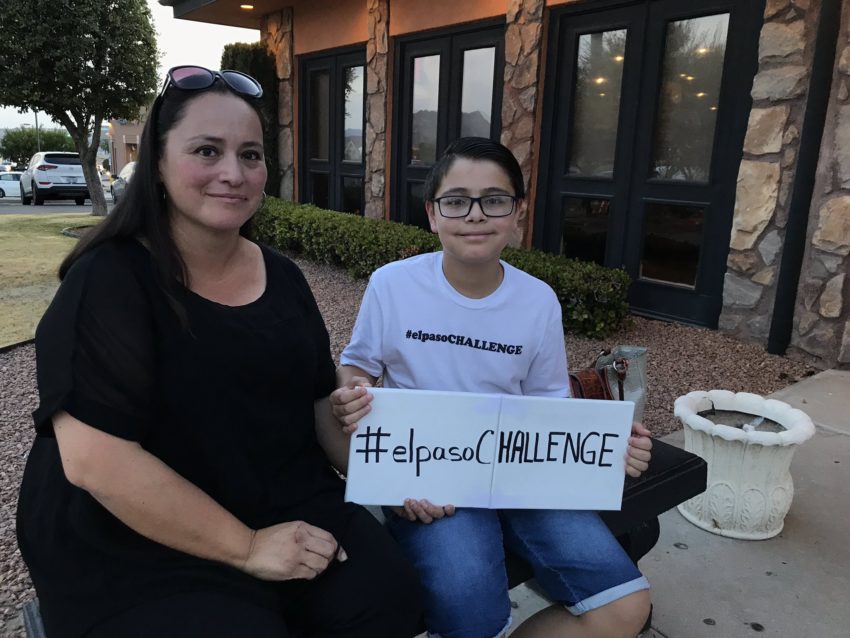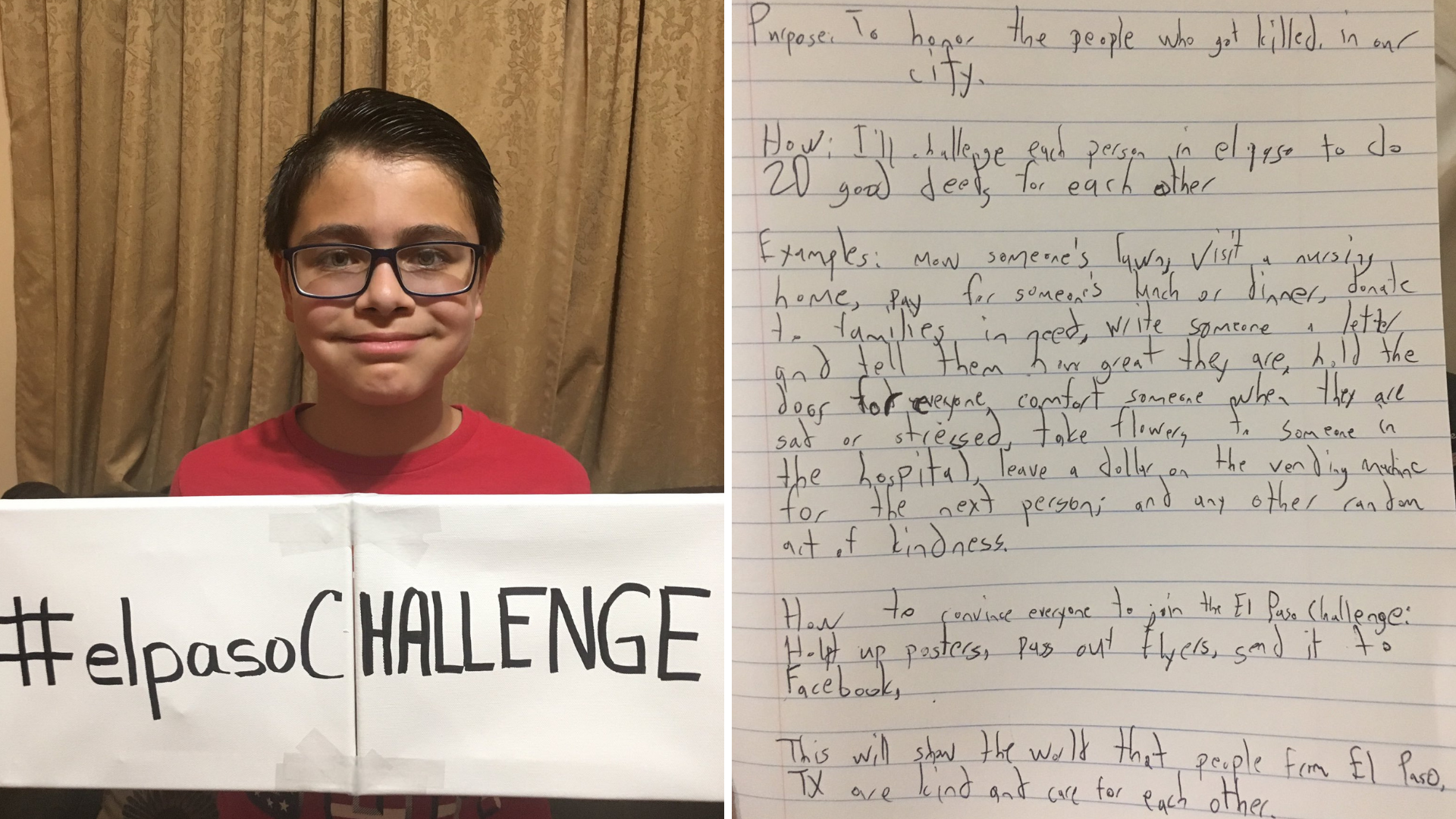
Share On Social!
Last week’s horrific mass shooting that targeted Latinos in an El Paso Walmart has shaken the nation.
In spite of the hatred that motivated the shooting, 11-year-old Ruben Martinez in El Paso started a campaign on social media to help his community heal: The El Paso Challenge.
Ruben suggested that kindness could be spread by doing 20 good deeds in honor of the victims of the shooting (the death toll later rose to 23).
It all started when Ruben told his mom, Rose Gandarilla, he was afraid to go to the store.
“He was having some trouble dealing with what happened,” Rose Gandarilla, Ruben’s mother, told CNN.
“I explained to him that we could not live in fear and that people in our community are caring and loving. I told him to try and think of something he could do to make El Paso a little better.”
The El Paso Challenge
Ruben, along with his mother, created the #elpasoCHALLENGE social media campaign to inspire others to spread kindness and give back to their community.
 “My 11 year old came to me with an idea. The #elpasoCHALLENGE challenges ALL El Pasoans to commit 20 Random Acts of Kindness. One for every person that was killed in our city’s mass shooting. Let’s get this done El Paso,” tweeted Gandarilla.
“My 11 year old came to me with an idea. The #elpasoCHALLENGE challenges ALL El Pasoans to commit 20 Random Acts of Kindness. One for every person that was killed in our city’s mass shooting. Let’s get this done El Paso,” tweeted Gandarilla.
“Last night, he agree(d) to go out to do his first act of kindness,” Gandarilla told CNN. “He chose to go deliver dinner to our first responders.”
Other acts of kindness include:
• Comforting someone who is sad or stressed
• Donating to families in need
• Writing someone a letter and telling them how great they are
• Mowing someone’s lawn
• Taking flowers to the hospital
• Visiting a nursing home
• Paying for someone’s lunch
The #elpasoCHALLENGE has taken off on social media.
A friend found this taped to a Redbox here in Bryan/College Station. A little faith in humanity! #ElPasoChallenge pic.twitter.com/WHChi53LsR
— Jerron Reese (@CoachReese12) August 9, 2019
So proud of #MooseHerd & our campus wide Random Act of Kindness to help comfort & donate a stuffed animal to bring a smile to elementary El Paso Children💙 #TeamSISD #ElPasoChallenge #ElPasoStrong #PBIS @SISD_MS #MontwoodStrong pic.twitter.com/3A2yYPt5ov
— Melissa Martinez (@Montwood_MS) August 9, 2019
#ElpasoCHALLENGE number 5 #ELPASOSTRONG pic.twitter.com/s0ixbToQZr
— Jessica Pizarro (@jpizarro_LVES) August 9, 2019
Why Is This Important?
Living in fear is the norm for many Latinos and undocumented immigrants. They face a rising rhetoric of hate and anti-immigrant sentiment. One study found potentially dehumanizing terms—“illegal immigrants,” “illegal aliens,” or “illegals”—in nearly every news outlet.
This rhetoric is harmful for Latino mental and physical health, regardless of their immigration status.
“Current discourse about immigrants and immigration tends to be dehumanizing,” Dr. R. Gabriela Barajas-Gonzalez, assistant professor of Population Health at NYU’s School of Medicine and lead author of the study, told HuffPost. “Dehumanization is never healthy.”
Latinos makeup nearly 18% of the U.S. population and are the largest ethnic minority.
Yet, Latinos are more likely than their peers to have mental health issues. These issues usually go untreated, according to a Salud America! research review.
Studies also show that 23% of adult undocumented immigrants who live by the border are at risk for mental health disorders. Depression and anxiety were two of the most concerning issues.
Researchers like Dr. Luz Garcini of Rice University continue to study the effects.
“When you study the context and you learn the story, you realize that the majority of these people are struggling, that they come here with a purpose, that they want to work,” Garcini said. “They want to better their lives.”
Explore More:
Overcoming Harmful BiasesBy The Numbers
3
Big Excuses
people use to justify discriminatory behavior



